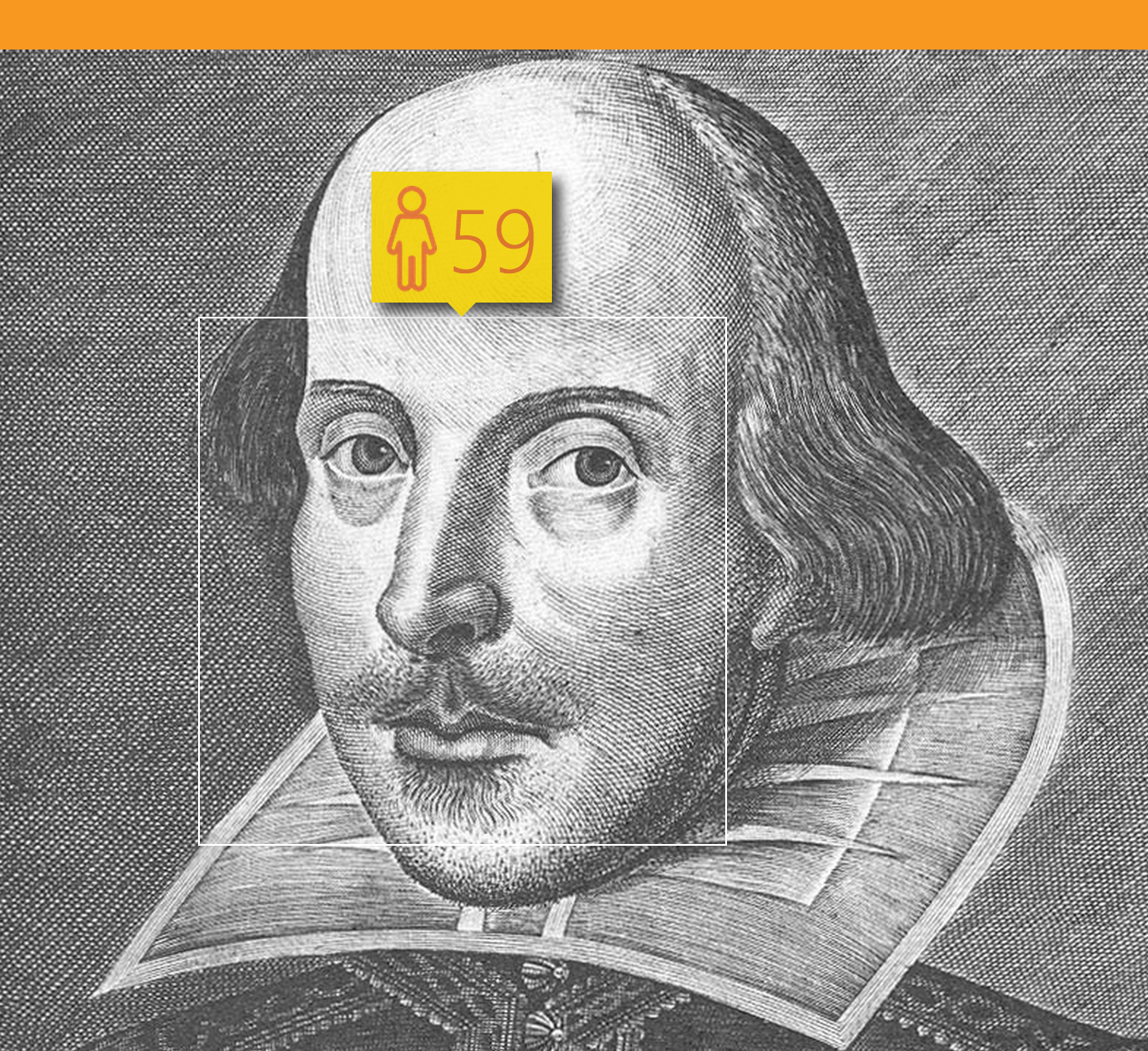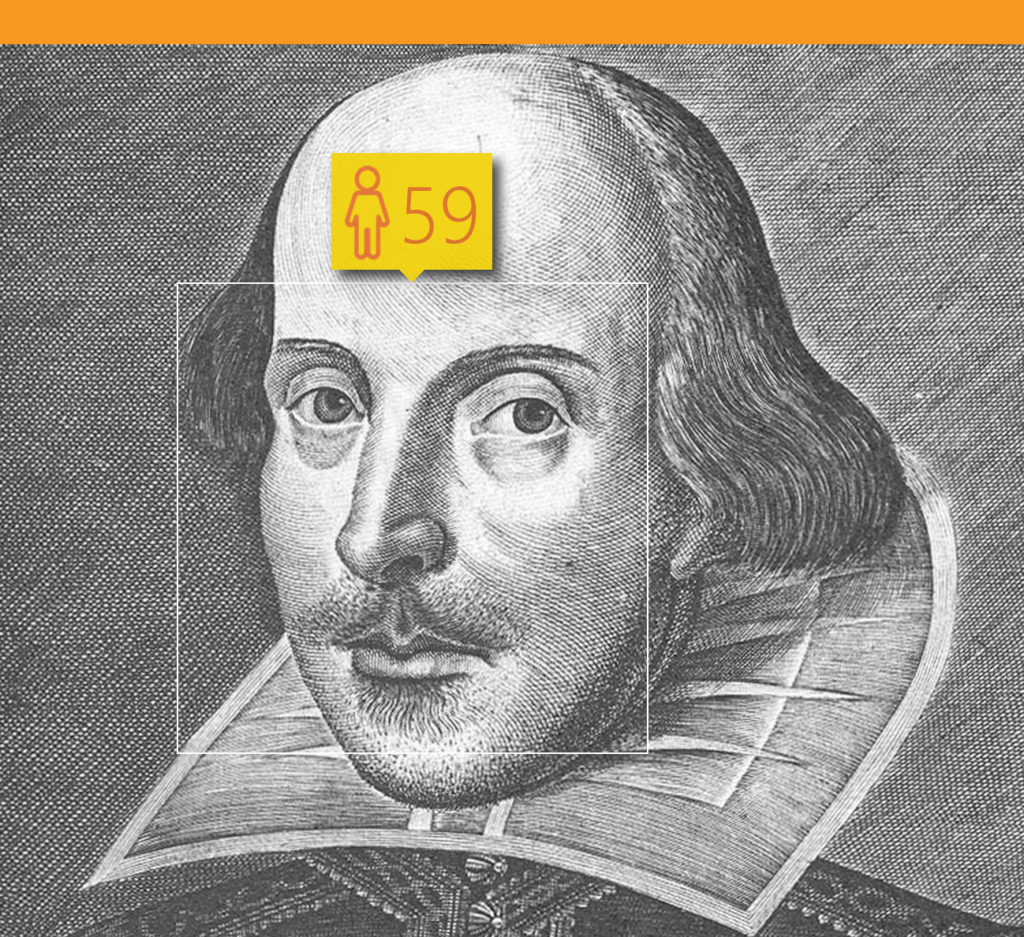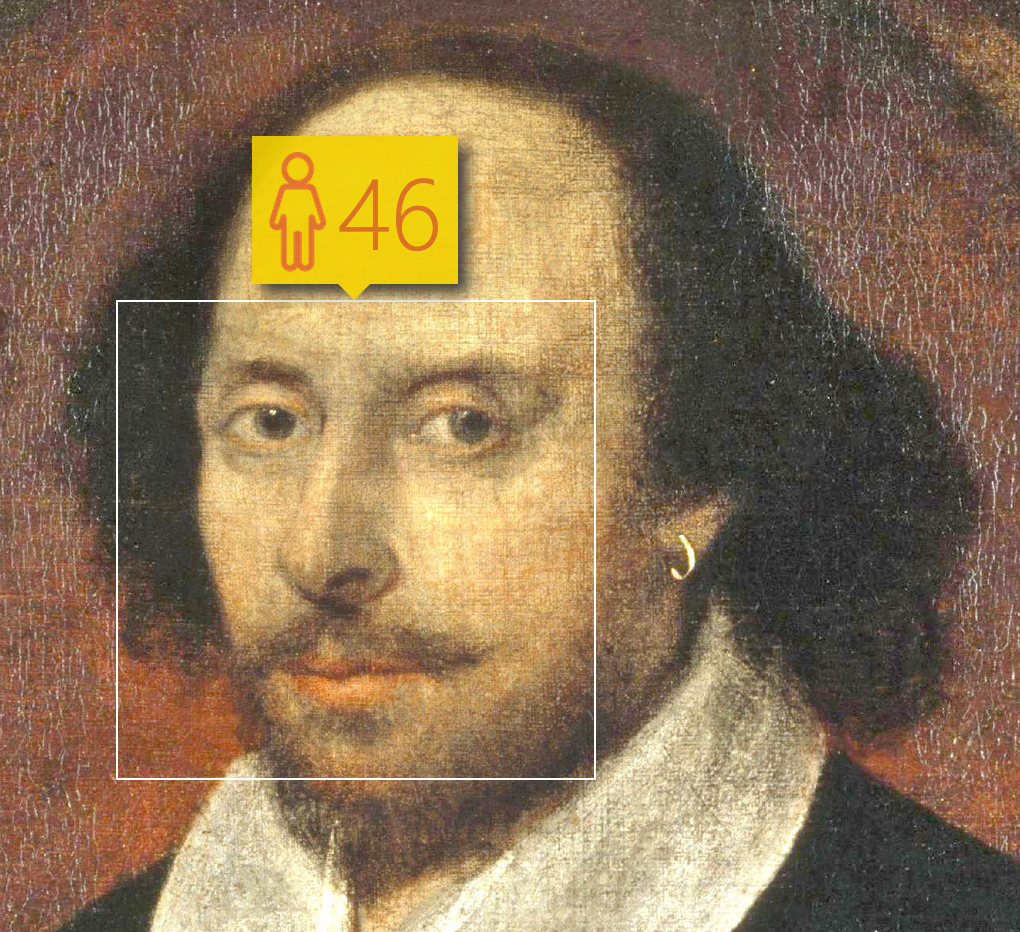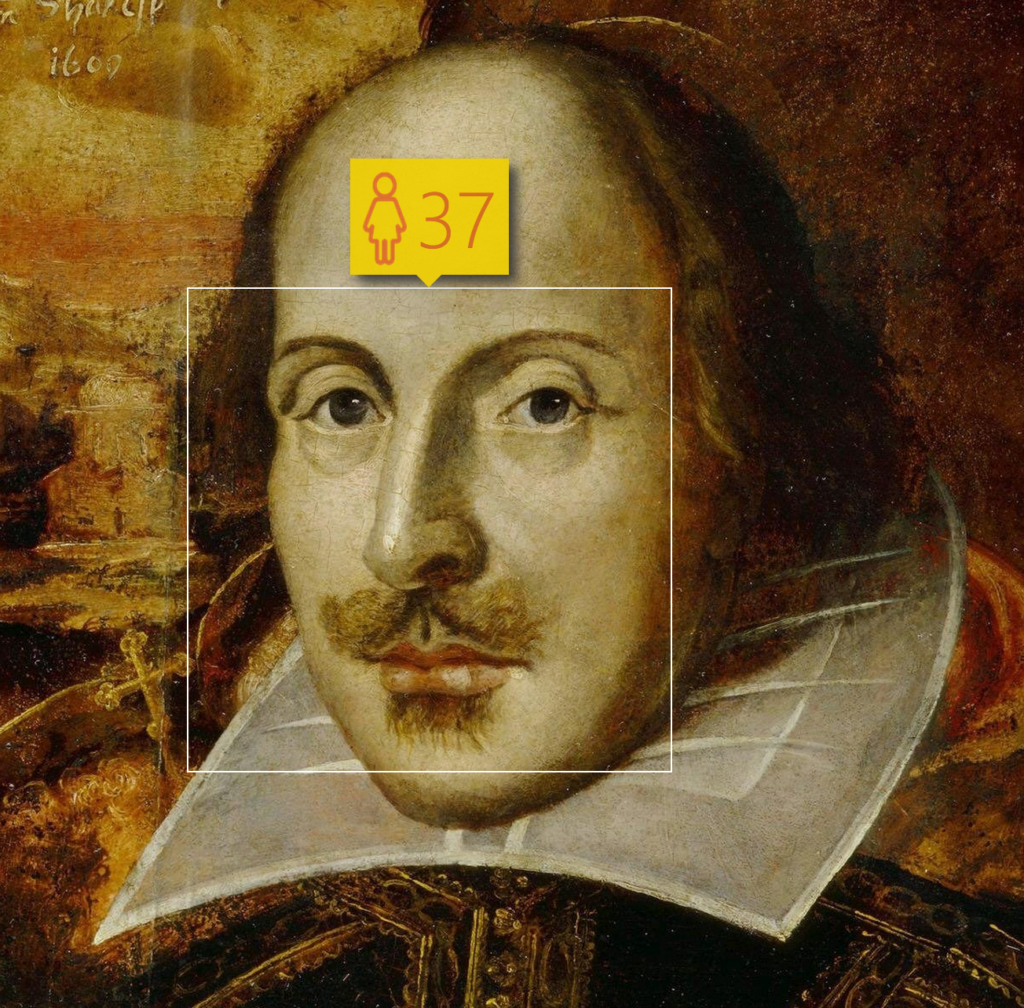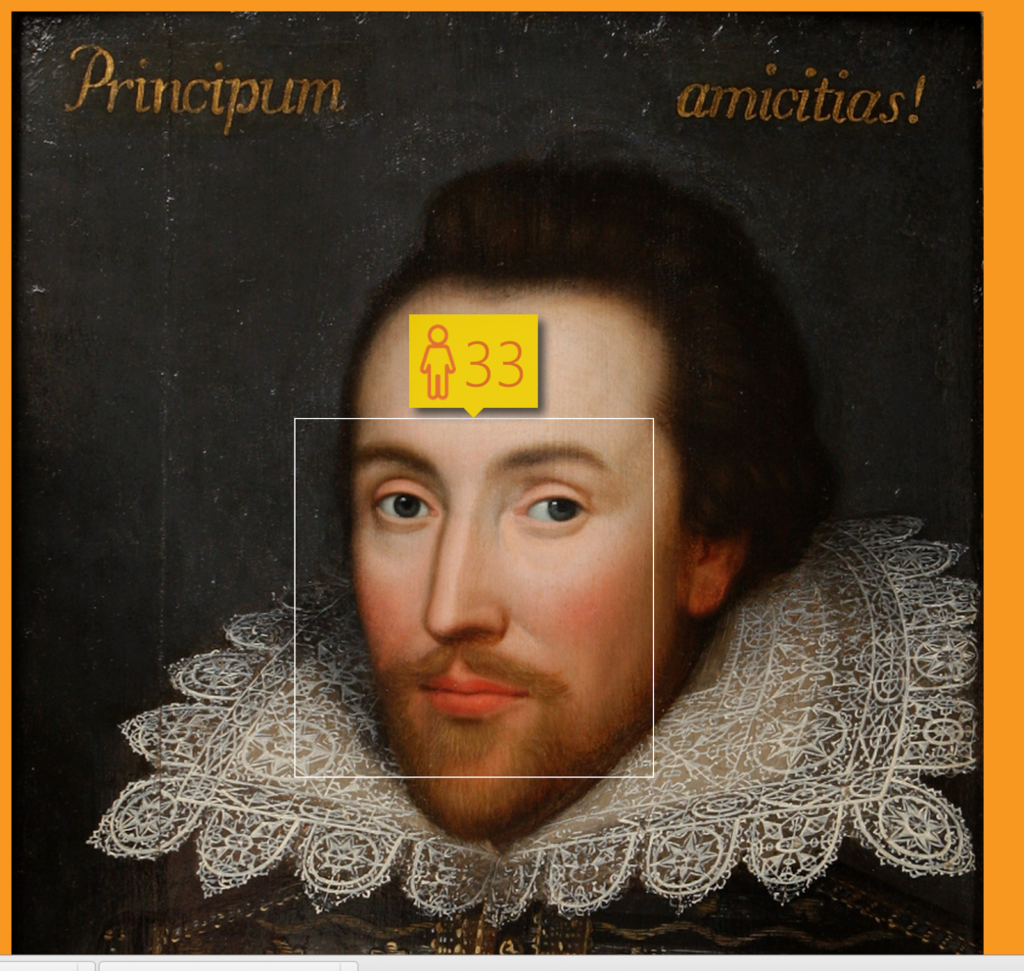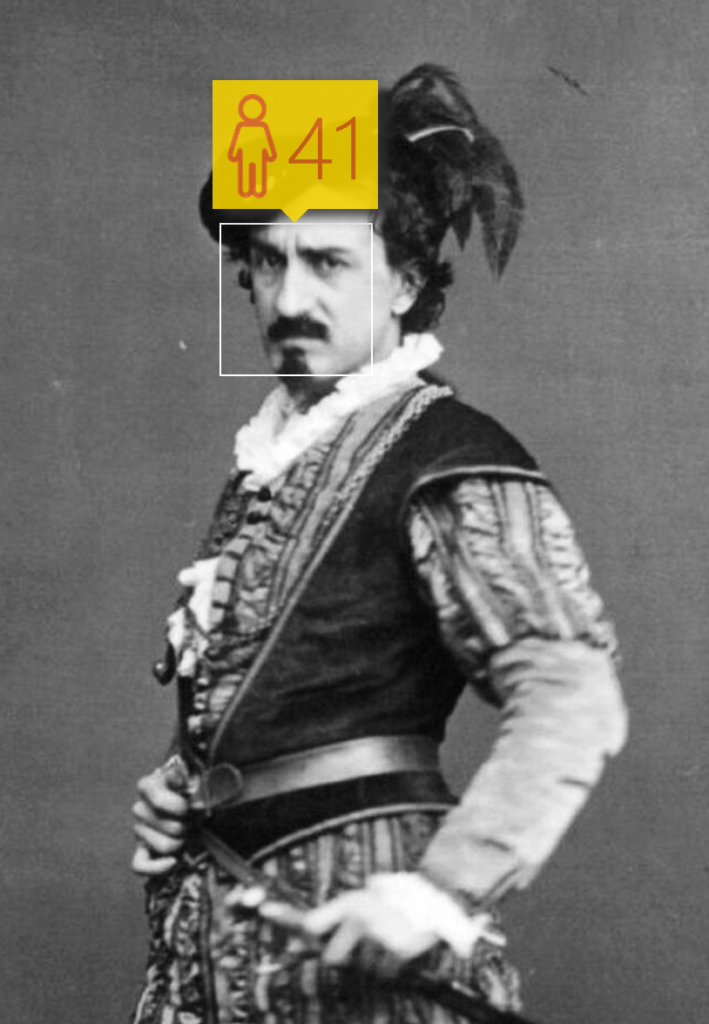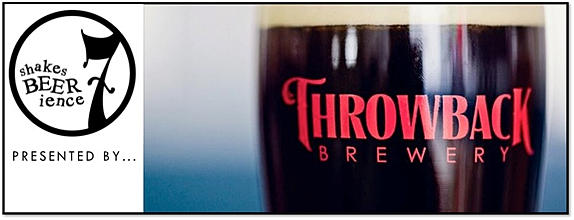Twitter is all abuzz playing with #HowOldRobot, Microsoft’s new toy. You upload a photo of a face and then it guesses your age. So of course I had to do Shakespeare, it’s kind of my thing. Since nobody really knows when the portraits were done, maybe Microsoft can bring some new data to the field.
First we’ll start with the Droeshout:
Ok, better. Thought to have been created in 1610, during Shakespeare’s lifetime, the subject would have been exactly 46.
I’ve never really liked the Flower portrait – is it even legit, or is it a forgery? Regardless, how did it fare?
Oh, something I haven’t mentioned yet is that HowOldRobot also attempts to guess gender. And apparently Shakespeare looks like a woman in this one. A relatively young woman, in fact.
Then there’s the new kid on the block, Cobbe. When this one made the news I remember people commenting that this was the first one that made him look like a handsome young man.
Apparently HowOldRobot agrees! Of course, back then they were making the argument that it was likely painted in 1610, making Shakespeare 46 at the time. I wonder which is more accurate?
Finally, for accuracy and since I had it laying around (hey, who doesn’t?) here’s Edwin Booth as Iago. This picture I can specifically date, so we can use it as a baseline for how good the guesses have been.
This picture is dated circa 1870. Booth was born in 1833, making him approximately 37 at the time. Allowing a few years for the “circa” thing and the fact that he’s made up for the stage, it’s actually a pretty good guess.
Oh, what the heck, one more. How old is Hamlet?
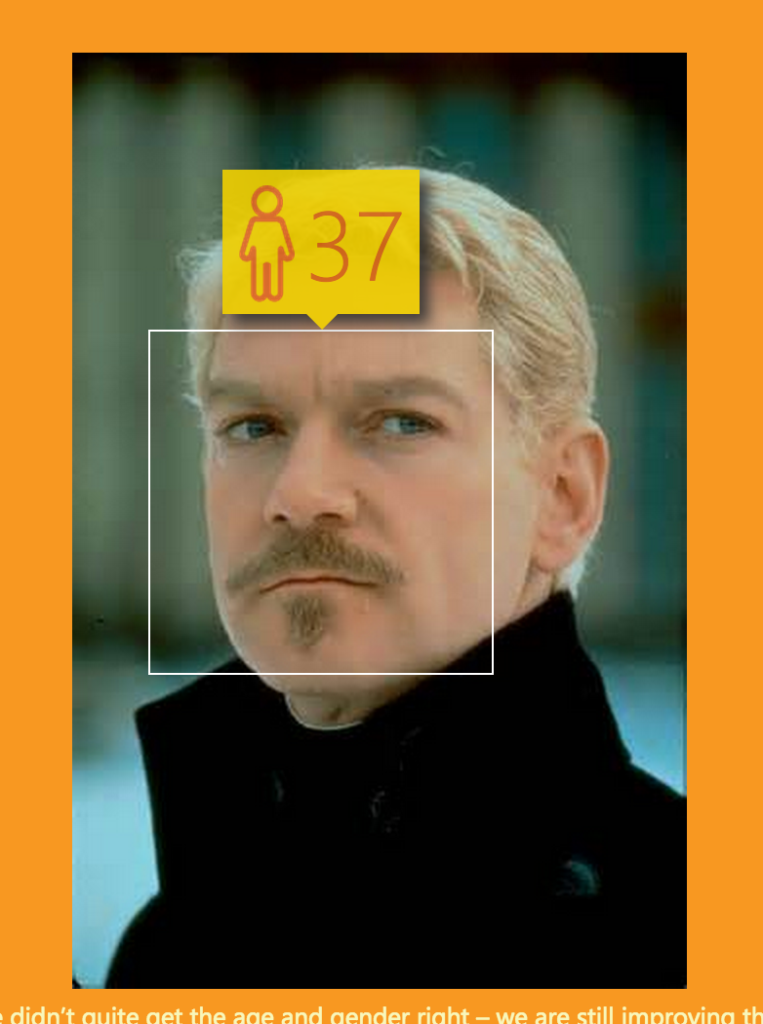 |
|
In Branagh’s 1996 Hamlet, he would have been 36 years old in real life.
|
 |
| In David Tennant’s 2009 version, the actor was 38 in real life. |
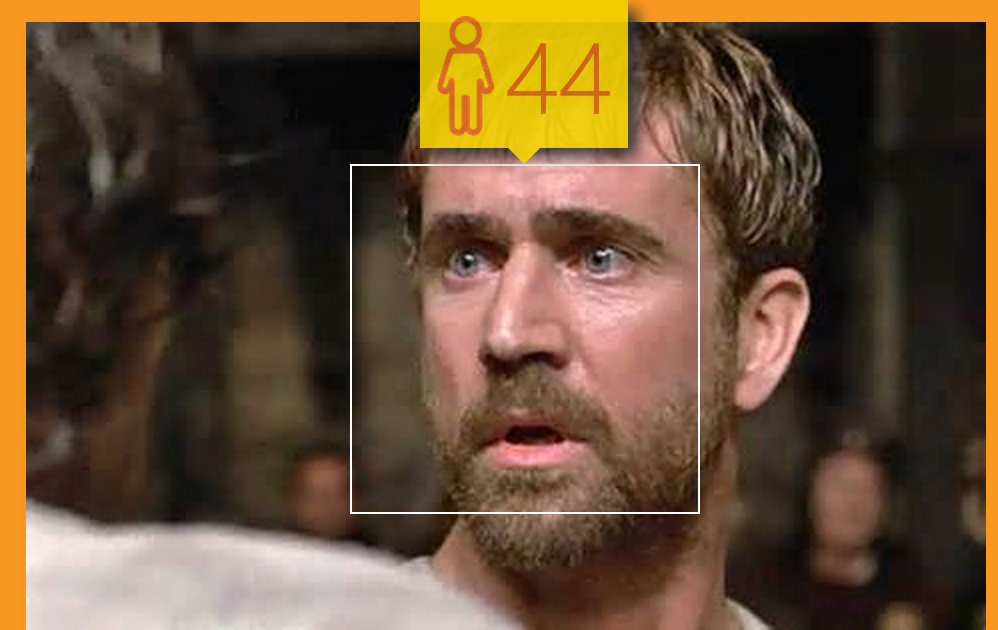 |
| Mel Gibson was actually 34 in his 1990 version. |
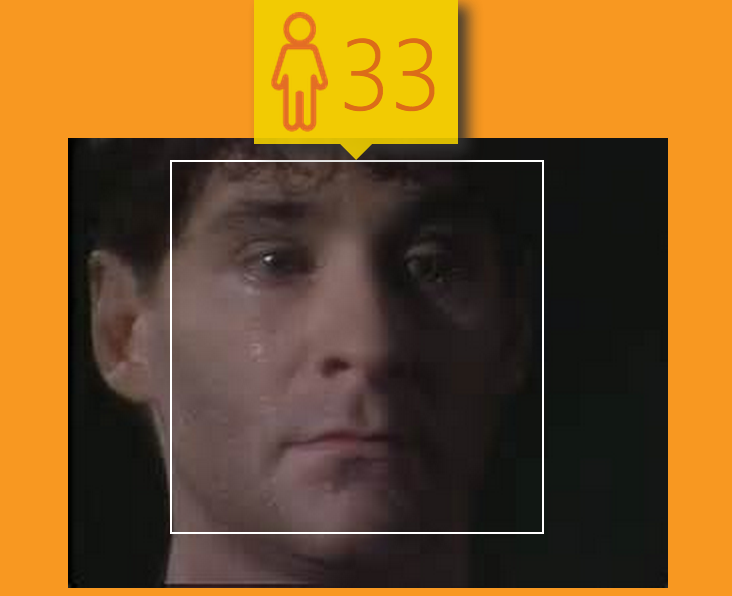 |
| Kevin Kline also did Hamlet in 1990 (though it was overshadowed by Mel Gibson’s version). Funny, though, that Kline is older than Mel Gibson and would have been 43 in this picture. |
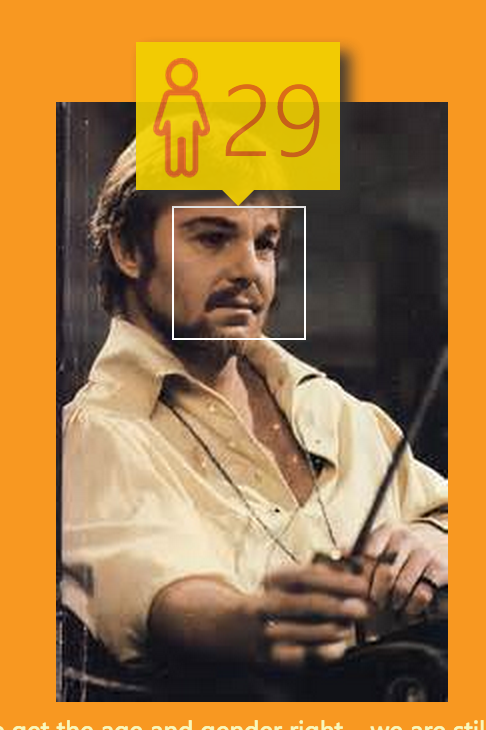 |
| Putting Kline to shame in the “looking younger than you are” category is Sir Derek Jacobi in his 1980 Hamlet, when he would have been 42 – 13 years older than HowOldRobot thinks he is. |
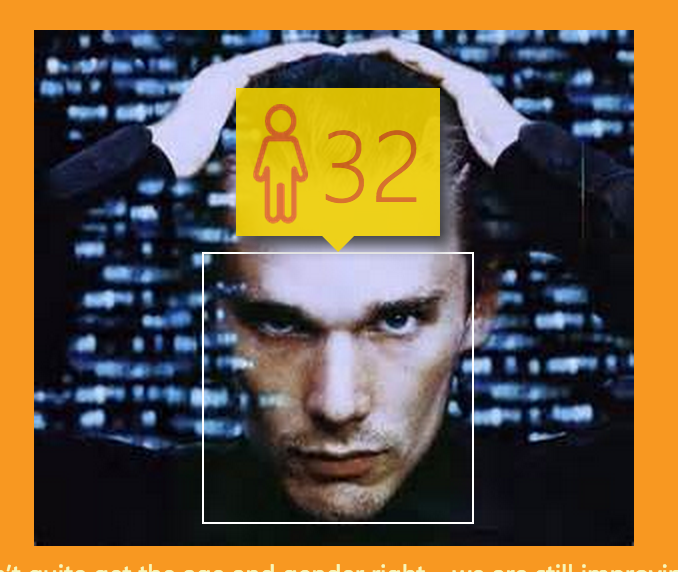 |
| And then there’s Ethan Hawke, who was actually 30 when his movie came out in 2000, making him the actual youngest Hamlet on our list. Even though Jacobi looks it. 🙂 |

